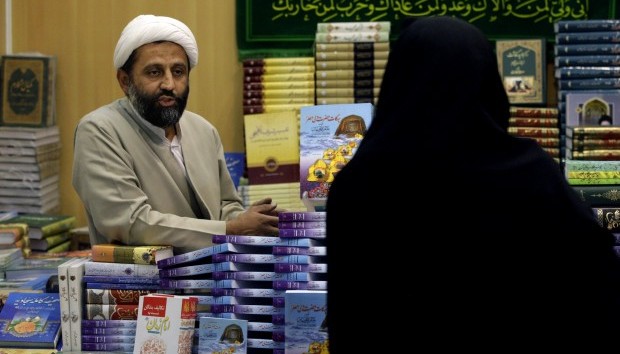There can be no doubt that publishers in the Arab world are facing an acute crisis. The market has completely shut down, particularly in view of the consequences of the Arab Spring. This also includes the situation in Syria—and it is worth mentioning that the Syrian reader is very important to the Arab publishing industry at large. Furthermore, some Arab countries have never been opened to the publishing industry, including Libya, Sudan and, to a large extent, Iraq. These countries must be opened up to Arab publishing.
In light of all this, what markets remain open for Arab publishers?
In the Egyptian market, one could say that the consumer’s ability to purchase books is very weak, if not completely non-existent today. The Lebanese market is very small in terms of consumption. Accordingly, the Gulf region remains the most important of all markets. We must also take into consideration the fact that there is a [political] crisis in Bahrain. In my assessment, I believe that without Gulf consumption of books, the Arab publishing crisis would have been even more grave. We must not forget to add here that despite this, censorship in the Gulf is frustrating the spread of books and reading in the region.
Despite the catastrophic situation outlined above, an important new opportunity has presented itself for the Arab publishing industry—namely female readers. The female readership has increased significantly over the past few years. This phenomenon has somewhat relieved the losses incurred by the publishing sector. In a country like the United Arab Emirates, for example, it seems that only women are reading.
The issue of pirated books is further aggravating the publishing crisis today, and has only intensified in view of the security unrest in several Arab Spring states. This issue is not limited to print books, but also includes e-books.
So how can we help publishers overcome this problem?
Reading is a complex issue, and it requires collaborative efforts so that one views reading as a human requirement, not a mere luxury. This is something that requires efforts from families, educational institutions, public libraries and special civil institution. The government and civil institutions must work together to entrench this love of reading in the populace, and this is something that cannot be achieved overnight.
However, there are a series of practical issues that could help Arab publishers overcome this crisis:
Firm laws must be enacted in order to punish those pirating books, whether we are talking about physical books or e-books; this will ensure justice for both the publishers and authors. While translation support programs must also be established and publishers should be given complete freedom to publish whatever books they deem appropriate. We must award our talented literary youth so that publishers will not be considered running a risk by publishing their work. We must also completely do away with censorship.
What we need today in order to keep pace with the Arab Spring, or let us say to correct its course, is a culture that is open to all ideas and innovations and cultures. We need freedom of expression. There can be no culture without reading, and there can be no reading without publishing.
The counterpoint to this piece can be read here

Trackbacks/Pingbacks